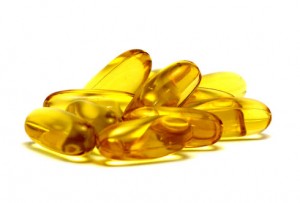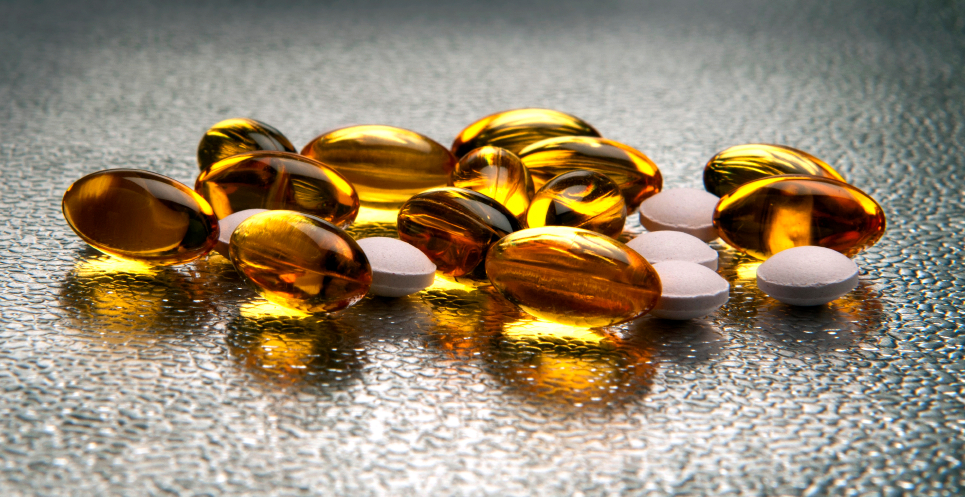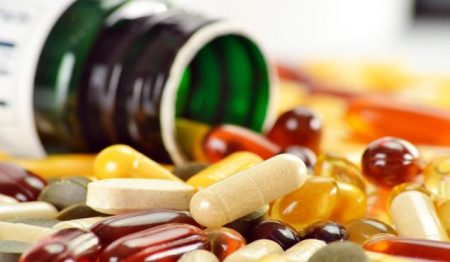Dr. Post’s Recommendations For Treating Youth with Bipolar Symptoms
Our Editor-in-Chief, Dr. Robert M. Post, shares his personal recommendations for the treatment of children and adolescents with symptoms of bipolar disorder. Remember: Patients and family members must consult a physician about all information conveyed in the BNN. With the exception of lithium, none of the medications or supplements discussed above have been approved by the US Food and Drug Administration for use in children under 10. The findings reported here are in many cases preliminary and cannot be taken as recommendations based on the short summaries provided here. All treatment decisions must be made in conjunction with a patient’s treating physician, who is solely responsible for initiating any treatment discussed in the BNN or elsewhere.
In symptomatic and functionally impaired children, medication is almost always necessary. Many treating psychiatrists would start with an atypical antipsychotic, since there is clear evidence of the efficacy of such treatments. The side effects profile should be considered, as there is a considerable difference in the degree of weight gain associated with different atypical antipsychotics. The largest weight gains occur with olanzapine and clozapine, intermediate gains occur with aripiprazole and quetiapine, and the least gains occur with ziprasidone and lurasidone (and the latter has the advantage of being approved by the US Food and Drug Administration for the treatment of bipolar depression in children who are 10–17 years old). The addition of the diabetes drug metformin to decrease weight gain in people taking atypical antipsychotics is increasingly common.
The addition of an anticonvulsant medication (such as lamotrigine, carbamazepine/oxcarbazepine, or valproate) or the mood stabilizer lithium may be needed, as multiple studies indicate that combination treatment is typically needed in children (as in adults) to achieve a more complete response or remission.
Interestingly, oxcarbazepine was effective in younger but not older children with mania in a previous placebo-controlled study by Karen D. Wagner and colleagues published in the American Journal of Psychiatry in 2006.
Conversely, in a 2015 article in the journal JAACAP, researcher Robert Findling reported that in a placebo-controlled study of lamotrigine, 13–17-year-olds responded better than 10–12-year-olds.
Lithium treatment deserves consideration in children with classical presentations of bipolar disorder and those who have family members who have responded well to lithium treatment.
Lithium has the benefit of improving the white matter abnormalities seen in the brains of patients with early-onset bipolar disorder. Hafeman and colleagues reported in a 2019 article that children with bipolar disorder who were treated with lithium had better long-term results upon follow up than those treated with atypical antipsychotics or anticonvulsants.
There is much less scientific consensus about other adjunctive treatments for young people with additional bipolar symptoms and comorbidities, but this editor often uses several. Vitamin D3 is often low in children with psychiatric illness, and may improve mood and cognition.
The antioxidant N-acetylcysteine (NAC) helps depression, anxiety, and irritability, and is effective at treating habit-related behaviors such as trichotillomania (compulsive hair-pulling), obsessive-compulsive disorder (OCD), and drug use, including specifically reducing marijuana use in adolescents. A typical dose is 500–600 mg capsules, one capsule twice a day for one week, then two capsules in the morning and two in the evening thereafter.
Folate or folic acid may enhance antidepressant effects and those of lithium. In patients who have a particular low-functioning variant of a gene known as MTHFR, L-methylfolate is required instead of folate.
The widely-used supplement acetyl-L-carnitine (ALC) is poorly studied in children, but deserves consideration as a supplemental treatment for patients with histories of childhood adversity. In adults with depression, blood levels of ALC may be low, particularly in those with an early onset of bipolar symptoms and a history of childhood adversity (see a 2018 article by Carla Nasca in the journal PNAS). There is a modicum of evidence that ALC produces antidepressant effects in adults. ALC may also sensitize insulin receptors and normalize blood pressure.
There is increasing evidence of the role of inflammation in depression, mania, post-traumatic stress disorder (PTSD), and schizophrenia. Checking for abnormalities in inflammatory markers in the blood (especially Il-6 and CRP) may point the way to appropriate therapy with anti-inflammatory drugs such as minocycline (100 mg twice a day) or celecoxib (200 mg twice a day) in patients who do not respond fully to first-line medications.
Vitamin D Has More Benefits Than Previously Thought
 Vitamin D has long been known as an important vitamin for bone health, preventing conditions such as osteoporosis and rickets. More recently, research suggests that vitamin D may also protect against conditions such as cancer, heart failure, diabetes, respiratory tract infections, and autoimmune disease.
Vitamin D has long been known as an important vitamin for bone health, preventing conditions such as osteoporosis and rickets. More recently, research suggests that vitamin D may also protect against conditions such as cancer, heart failure, diabetes, respiratory tract infections, and autoimmune disease.
Many Americans have low vitamin D or a vitamin D deficiency. The human body produces vitamin D in large amounts when the skin is exposed to ultraviolet B rays in sunlight. Vitamin D can also be absorbed from vitamin D–fortified foods such as dairy products, some orange juice, and cereals. Some foods such as fatty fish, beef liver, and egg yolks naturally contain some vitamin D, but it is difficult to get enough vitamin D just from consuming these foods.
Low mood or seasonal affective disorder (SAD), in which people feel depressed during winter periods of limited exposure to sunshine, have been linked to low vitamin D.
Other symptoms of low vitamin D vary but can include pain in the joints, bones, or muscles; fatigue; and breathing problems.
Editor’s Note: A few small studies have suggested that 1,500 IU per day of vitamin D supplements can help depressed mood, even in those with normal vitamin D levels. Several studies have indicated that children or adolescents with psychiatric disorders are especially likely to be vitamin D–deficient. Another study found that higher amounts of vitamin D (4,000 IU) could improve cognition in healthy volunteers more than lower doses could. Vitamin D also improved cognition in people with multiple sclerosis and in those with the autoimmune disease Hashimoto’s thyroiditis.
Vitamin D Deficiency in Newborns Linked to Higher Risk of Schizophrenia in Adulthood
 A 2018 study by Darryl W. Eyles in the journal Scientific Reports found that newborns with vitamin D deficiency were more likely to develop schizophrenia later in life. The study made use of several Danish data depositories and had a large sample size of 2,602 participants. In this case control study, registries of patients treated for schizophrenia were matched up to preserved dried blood samples collected at their births, and these were compared to other dried blood samples from people without schizophrenia who shared the same sex and birthdate.
A 2018 study by Darryl W. Eyles in the journal Scientific Reports found that newborns with vitamin D deficiency were more likely to develop schizophrenia later in life. The study made use of several Danish data depositories and had a large sample size of 2,602 participants. In this case control study, registries of patients treated for schizophrenia were matched up to preserved dried blood samples collected at their births, and these were compared to other dried blood samples from people without schizophrenia who shared the same sex and birthdate.
The researchers divided participants into quintiles based on vitamin D levels at birth. Compared to those who fell into the fourth quintile, those in the lowest quintile were 44% more likely to be diagnosed with schizophrenia in adulthood. The researchers also determined polygenic risk scores for each participant, that is, they calculated schizophrenia risk based on the presence of various genes. The two processes together explained 1.2% of the variance in schizophrenia diagnoses.
Risk factors for vitamin D deficiency include being born in the winter or spring, living in high-latitude locations, spending early life in an urban setting, and being darker-skinned (especially in high-latitude locations). These risk factors are all correlated with decreased skin absorption of UV rays from the sun, which is how the human body produces vitamin D. The vitamin D receptor is expressed in the brain in areas that are relevant to schizophrenia, such as areas with a lot of dopamine activity, and each of the above risk factors also applies to schizophrenia.
As expected, participants born in the winter and spring had lower vitamin D levels. Participants whose parents had immigrated to Denmark had lower vitamin D than those with parents native to Denmark.
Newborns’ vitamin D levels depend completely on their mothers’ vitamin D levels, so Eyles and colleagues suggest that ensuring pregnant women have adequate vitamin D levels could prevent some cases of schizophrenia.
Prenatal Prevention of Psychiatric Illness with Nutritional Supplements
 In a 2018 article in the American Journal of Psychiatry, researcher Robert Freedman and colleagues shared the results of a systematic review of data on nutritional supplements during pregnancy for the primary prevention of psychiatric illness in the child. Freedman and colleagues concluded that the evidence is robust that prenatal folic acid supplementation plus multivitamins not only can prevent birth defects such as cleft palate, spina bifida, and microcephaly, but also social withdrawal, decreased attention, and aggression at age 18 months. They wrote, “Supplements of up to 4 mg [of folic acid] before 12 weeks gestation have been found to be safe and effective.”
In a 2018 article in the American Journal of Psychiatry, researcher Robert Freedman and colleagues shared the results of a systematic review of data on nutritional supplements during pregnancy for the primary prevention of psychiatric illness in the child. Freedman and colleagues concluded that the evidence is robust that prenatal folic acid supplementation plus multivitamins not only can prevent birth defects such as cleft palate, spina bifida, and microcephaly, but also social withdrawal, decreased attention, and aggression at age 18 months. They wrote, “Supplements of up to 4 mg [of folic acid] before 12 weeks gestation have been found to be safe and effective.”
The effects of omega-3 fatty acid supplementation depended on when the supplements were taken. Taking omega-3 fatty acid supplements early in pregnancy was linked to an increase in schizophrenia and more symptoms of attention deficit hyperactivity disorder (ADHD) in the offspring. However, supplementation after 20 weeks of pregnancy decreased preterm delivery, low birth weight, and asthma.
As of 2017, choline supplementation during pregnancy is recommended by the American Medical Association. Their recommendation is based on research in which the choline precursor phosphatidylcholine (5,000-6,300 mg/day) was given to mothers beginning in the 18th week of pregnancy and continued in the newborn for two weeks to three months after birth in the form of 100mg of liquid phosphatidylcholine. This supplementation regimen normalized the P50 auditory evoked potential, a measure of inhibitory sensory gating that is abnormal in patients with schizophrenia and bipolar disorder and infants whose parents had psychosis, depression, or smoked (all risk factors for a later diagnosis of schizophrenia).
Healthy individuals show a reduced response to an auditory cue when it is repeated 50 milliseconds after the initial cue. In people with schizophrenia, response to the repeated cue is not suppressed. Not only did the P50 auditory evoked potential normalize with phosphatidylcholine supplementation, but at 3.5 years of age, those who received phosphatidylcholine supplements in utero and as newborns had fewer problems with attention and social interactions. The findings were even more robust in those with the CHRNA7 genotype (a genetic variation in the alpha 7 nicotinic receptor), which is a risk factor for schizophrenia.
Supplementation with vitamins A and D during gestation also decreased the risk for schizophrenia and autism spectrum disorders in offspring. Recommendations include Vitamin D at doses of 600 to 4,000 IU for pregnant mothers and 400 to 1,000 IU for infants. Because of potential toxicity, vitamin A should be limited to 8,000 units from diet and supplements combined. (Supplements typically contain 2,500 units.)
While there are some methodological limitations to the findings, Freedman and colleagues conclude, “As part of comprehensive maternal and fetal care, prenatal nutrient interventions should be further considered as uniquely effective first steps in decreasing risk for future psychiatric and other illnesses in newborn children.”
Editor’s Note: Given the high risk of psychiatric illness (74%) in the offspring of a parent with bipolar disorder and the finding of abnormal P50 auditory evoked potential in patients with bipolar disorder, the recommended nutritional supplements should be given special consideration during gestation of a child who has a parent with bipolar disorder. According to the 2018 article by Freedman and colleagues, this would include folate, phosphatidylcholine, vitamin A and vitamin D.
Vitamin D3 Improves Depression in Older Adults
Researcher Negin Masoudi Alavi and colleagues reported in the journal Clinical Nutrition in 2018 that compared to placebo, 50,000 IU of vitamin D3 taken weekly for eight weeks improved depression in depressed patients over the age of 60.
Although the literature about vitamin D3’s effects on depression are mixed, a 2014 meta-analysis by Simon Spedding in the journal Nutrients found that in studies of vitamin D-deficient depressed participants whose vitamin D levels were restored to normal levels by the end of the study, vitamin D significantly improved depression. (Spedding attributed earlier mixed results to studies that did not clearly correct a vitamin D deficiency.) A 2013 study by Nayereh Khoraminya and colleagues in the Australian and New Zealand Journal of Psychiatry suggested that a 1500 IU dose of vitamin D3 combined with the selective serotonin reuptake inhibitor (SSRI) antidepressant fluoxetine improved depression more than fluoxetine plus placebo in depressed patients who were not necessarily deficient in vitamin D. Another study by Jacqueline A. Pettersen in the journal Experimental Gerontology found that in healthy adults, 4,000 IU of vitamin D3 improved cognitive functioning (namely visual memory) more than 400 IU.
Editor’s Note: Given these promising studies, the safety of D3, and fact that psychiatric patients are often deficient in vitamin D3, taking vitamin D3 supplements to improve depression might be worth trying.
Supplements for the Treatment of Schizophrenia
At the 2018 meeting of the North Carolina Psychiatric Association, researcher Karen Graham reviewed evidence for adjunctive treatments that may help treat schizophrenia when added to antipsychotic medications.
Graham endorsed omega-3-fatty acids, saying that they may delay the conversion to schizophrenia in young people at high risk for the illness. Data in chronic schizophrenia are more equivocal.
Data on the effects of vitamin D3 in schizophrenia are mixed, but D3 is often low in patients with psychotic disorders, and supplementation with vitamin D3 in the general population has been associated with decreases in cancer and all-cause mortality.
Graham indicated that in three studies vitamin B6 (pyridoxine) decreased tardive dyskinesia, a side effect of antipsychotic medication that is characterized by repetitive or jerky involuntary movements of the face and body. B6 also reduced the severity of akathisia or restless legs, which is comparable to the effects of 40mg/day of the beta blocker drug propranolol. Graham recommended a dose of 300mg/day of B6 that could be increased up to 600mg twice per day. The onset of effects usually begins by week three, and the cost ranges from 25 to 80 cents per day.
The antioxidant supplement N-acetylcysteine (NAC) may also help. Graham described six studies that found NAC had positive effects on negative symptoms (apathy, blunted emotions, etc.) and/or cognition in patients with schizophrenia. The dosage in these studies was usually 2 grams/day for 24 weeks. The cost was 50 cents per day.
Two 8-week trials of L-theanine (an amino acid found in green and black tea) at doses of 400mg/day improved negative symptoms and anxiety in 40 patients with schizophrenia. The rationale for the study was that L-theanine increases inhibitory neurotransmitters, modulates the amino acid 5-HTP and the neurotransmitter dopamine, increases brain-derived neurotrophic factor (BDNF), and may be neuroprotective after a heart attack or a traumatic brain injury. The cost is 40 cents per day.
Graham reported that the supplement ginkgo biloba produced significant improvement in negative symptoms and total symptoms in eight clinical trials that included a total of 1,033 patients with schizophrenia. Doses ranged from 240 to 360 mg/day. These supplements (usually extracted from leaves of the ginkgo tree) have not been found to have many side effects, but they can reportedly increase post-operative bleeding. Gingko biloba supplements cost 20 to 80 cents per day. There is also at least one positive study of ginkgo biloba in tardive dyskinesia.
Three of four studies of cannabidiol in schizophrenia have been positive (at doses of 600, 800, and 1,000 mg/day in studies that lasted four to six weeks). There are now six additional ongoing studies listed on the website clinicaltrials.gov. There is little of this diol component in regular marijuana, and the cost of pure cannabidiol is unfortunately an exorbitant $60 to $100/day.
There is a positive controlled study of the herb ashwagandha in 66 patients with schizophrenia.
Not included in Dr. Graham’s review was the prenatal treatment of women with phosphatidylcholine (900mg/day) followed by supplements in the newborn, which normalized an aspect of sensory gating known as P50 in patients with schizophrenia. Healthy individuals show a reduced response to an auditory cue when it is repeated 50 milliseconds after the initial cue. In people with schizophrenia, response to the repeated cue is not suppressed. This has been suggested by researchers Robert Freedman and Randal G. Ross in a 2015 article in the Shanghai Archives of Psychiatry as a possible primary preventive approach to schizophrenia.
Pregnant women in their second and third trimesters should at least consume foods high in choline, especially if the fetus is at high risk for schizophrenia because of a family history of schizophrenia.
Beef liver is very high in choline, providing 420mg per slice. Other animal products provide significant choline, such as eggs (120 mg/egg), beef (90mg/100g), chicken liver (85mg/liver), fish (85mg/100g), bacon (35mg/strip) or other pork, chicken (67mg/100g). Tofu (36mg/half cup) and cereal (22mg/half cup) are also sources of choline.
Foods High in Choline
| Beef liver | 1 slice | 420mg choline; |
| Egg | 1 egg | 120; |
| Beef | 100 gm | 90; |
| Chicken liver | 1 liver | 85; |
| Fish | 100 gm | 85; |
| Bacon or pork | 2 strips bacon | 70; |
| Chicken | 100 gm | 67; |
| Tofu | 120 ml (0.5 cup) | 36; |
| Cereal | 120 ml (0.5 cup) | 22 |
Dietary Supplements for Autism: Up-to-Date Research
A 2017 review article by Yong-Jiang Li and colleagues in the journal Frontiers in Psychiatry describes the current research on dietary supplements that may help improve symptoms of autism spectrum disorder.
Some of the most promising research was on vitamin D, folinic acid, and sulforaphane. Methyl B12 and digestive enzyme therapy had some positive effects, while gluten- and casein-free diets and omega-3 fatty acids did not seem to help improve autism symptoms.
Vitamin D
Li and colleagues described a randomized, controlled trial of vitamin D in 109 children with autism aged 3 to 10 years. The experimental group received doses of 300 IU/kg of body weight/day, not exceeding 5000 IU/day. By the end of the four-month study, vitamin D levels had significantly increased in the experimental group compared to the control group. Those who received vitamin D also showed significant improvement on all ratings of autism symptoms, which included general scales of autism symptoms and more specialized checklists that capture aberrant behavior and social responsiveness.
Folinic Acid
The review article also described a randomized double-blind placebo-controlled trial of folinic acid in 48 children with autism spectrum disorder and language impairment. Participants received high-dose folinic acid (2 mg/kg/day) or placebo for 12 weeks. Those who received folinic acid, a form of folic acid that can readily be used by the body, showed significant improvements in verbal communication and core autism symptoms compared to those who received placebo. Participants who tested positive for folate receptor alpha autoantibodies (FRAA), which disrupt the transportation of folate across the blood-brain barrier and are common in autism, showed greater improvements from taking folinic acid than those without this abnormality.
Sulforaphane
Sulforaphane is a phytochemical derived from cruciferous vegetables. It can create metabolic effects that resemble those of a fever, which can improve behavioral symptoms of autism. Sulforaphane also fights oxidative stress, inflammation, and DNA damage, which may play roles in autism. Li and colleagues described the first double-blind, placebo-controlled trial of sulforaphane treatment in 29 boys aged 13 to 17 years. The boys who received sulforaphane showed significant improvement in autism-related behavior, especially social interaction and communication, after 18 weeks compared to those who received placebo. Sulforaphane has low toxicity and is well tolerated. Read more
High-Dose Vitamin D May Improve Cognition More Than Low-Dose Vitamin D
 Vitamin D deficiency has been associated with dementia and cognitive decline, but supplements may help. In a study of 82 healthy individuals with low vitamin D levels, high-dose vitamin D supplements (4000 IU/day) improved visual/nonverbal memory more than did low-dose vitamin D supplements (400 IU/day) over 18 weeks.
Vitamin D deficiency has been associated with dementia and cognitive decline, but supplements may help. In a study of 82 healthy individuals with low vitamin D levels, high-dose vitamin D supplements (4000 IU/day) improved visual/nonverbal memory more than did low-dose vitamin D supplements (400 IU/day) over 18 weeks.
The 2017 study took place in Canada, where short winter days can make it more difficult to get sufficient levels of vitamin D from sunlight. The higher-dose supplements raised blood levels of vitamin D compared with the lower-dose supplements.
Those who received the higher doses performed better at tests of visual memory such as the Pattern Recognition Memory Task and the Paired Associates Learning Task, but their performance on tests of verbal memory was not significantly different from those in the lower-dose group. This suggests that higher vitamin D levels are particularly important to visual/nonverbal memory.
The study by Jacqueline A. Pettersen was published in the journal Experimental Gerontology.
Dutch Study Links Low Vitamin D to Bipolar Disorder
A 2016 study in the Netherlands found that people with bipolar disorder are more likely to have vitamin D deficiency than the general population. Vitamin D deficiency has been linked to other psychiatric disorders including schizophrenia and unipolar depression. Poor diet and lack of exposure to sunlight can put someone at risk for vitamin D deficiency.
The study, led by Remco Boerman and published in the Journal of Clinical Psychopharmacology, included 118 adults with bipolar disorder, 149 with schizophrenia, and 53 with schizoaffective disorder. More than 30% of these participants had deficient levels of vitamin D. Only 15% had optimum levels of the vitamin. More than 22% of the participants with bipolar disorder were deficient in vitamin D, while close to 35% of those with schizophrenia and schizoaffective disorder were deficient.
Study participants had vitamin D levels that were 25% lower than those of the white Dutch population, and vitamin D deficiency was 4.7 times more common in those with psychiatric disorders than the general Dutch population.
The authors suggested screening people with bipolar disorder, schizophrenia, and schizoaffective disorder for low levels of vitamin D.
Vitamin D Deficiency Linked to Depression, But Supplements Helped
 A review article in the Journal of Affective Disorders in 2017 summarized findings linking vitamin D to depression. Researcher Gordon B. Parker and colleagues found an association between low vitamin D levels and depression. They also found that vitamin D supplements improved treatment in people with clinical depression and vitamin D deficiency.
A review article in the Journal of Affective Disorders in 2017 summarized findings linking vitamin D to depression. Researcher Gordon B. Parker and colleagues found an association between low vitamin D levels and depression. They also found that vitamin D supplements improved treatment in people with clinical depression and vitamin D deficiency.
Editor’s Note: Vitamin D supplements are an obvious recommendation for people who are deficient. What has not yet been resolved is whether vitamin D is helpful to people who are depressed but not vitamin D deficient.
In a 2013 study in the Australian and New Zealand Journal of Psychiatry, Nayereh Khoraminya and colleagues suggested that a 1500 IU dose of vitamin D3 combined with the selective serotonin reuptake inhibitor (SSRI) antidepressant fluoxetine was more effective than fluoxetine plus placebo in depressed patients who were not necessarily deficient in vitamin D.





